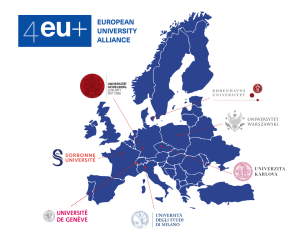
“Why does it matter?” – there are few questions that are more unnerving to sociologists than the one about the relevance of their work. This could be linked to the fact that, as sociologist, we have a double duty to perform where research relevance is concerned. The first duty is to convince our peers that our work constitutes some sort of scientific progress. A progress of analytical or theoretical nature on the backdrop of sound data – a step beyond the well-trodden paths of our sociological map. At the same time, we are urged to exercise caution and not to err too far off this map. Instead, we must connect our ideas to existing debates, thereby chartering new territories for those who might want to follow. A second duty consists in the development of a social critique. What are the inequalities, injustices, asymmetries and dysfunctionalities that lie at the heart of our work? More importantly: who should benefit from such knowledge? The question here is not “how” but “whom” to convince. Although our discipline has seen many talented sociologists becoming intellectual figures in socio-political debates, knowledge of how to practice social critique remains somewhat sketchy and anecdotal. So how to do relevant research? How to practice social critique? How do you make it worthwhile to others?
Relevant sociological research cannot do without a solid theoretical foundation. Sociological theory is essential on both above points. It enables us to build on existing knowledge, formulate relevant hypotheses and seek new areas of knowledge. And although for the public, theory is often the last thing that interests them, it provides us with coordinates in interpreting society. Without theory, social critique would make no sense and be just pub chatter. If we want our research to be relevant, it cannot be done without theory. So how to theorize? How to work with theoretical concepts?
This is where our summer school comes into play. The 4EU+ summer school is about engaging into a constructive dialogue regarding the relevance of your work and how to foster it through good theorizing. It will include workshops in which you will discuss your dissertation research with experienced tutors. Distinguished guests will share with you their experiences of achieving theoretical advances and social relevance in their work.
The summer school is supported by the 4EU+ alliance, an EU-funded cooperation project among Charles University, Heidelberg University, Sorbonne University, the University of Copenhagen, the University of Geneva, the University of Milan, and the University of Warsaw. We invite PhD students in all stages of their programme from the sociology departments of all our partner institutions to apply to our summer school.
Applications shall be submitted by April 30th 2024 to Eva Richter (eva.richter@ff.cuni.cz) and shall include a CV and a summary of your PhD thesis:
Applicants will be notified of their possible acceptance to the summer school by the end of May.
Participation at the school is free of charge. Students attending a 4EU+ member university can apply for 4EU+ funds to cover accommodation and travel costs at their home university.
For questions, please contact Eva Richter (eva.richter@ff.cuni.cz).